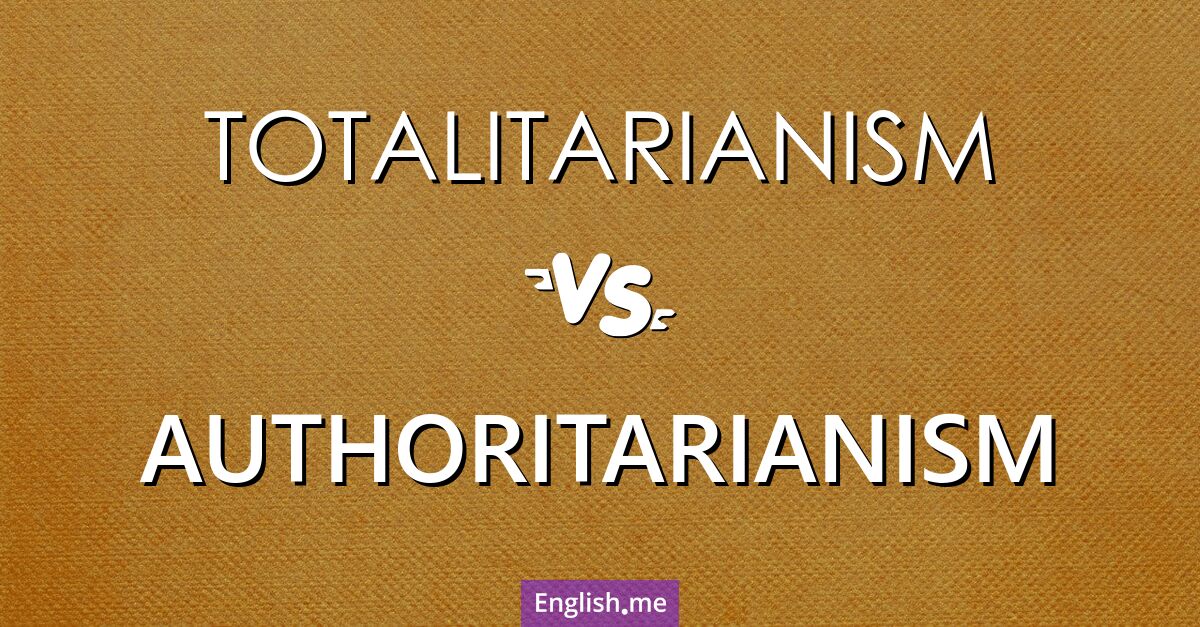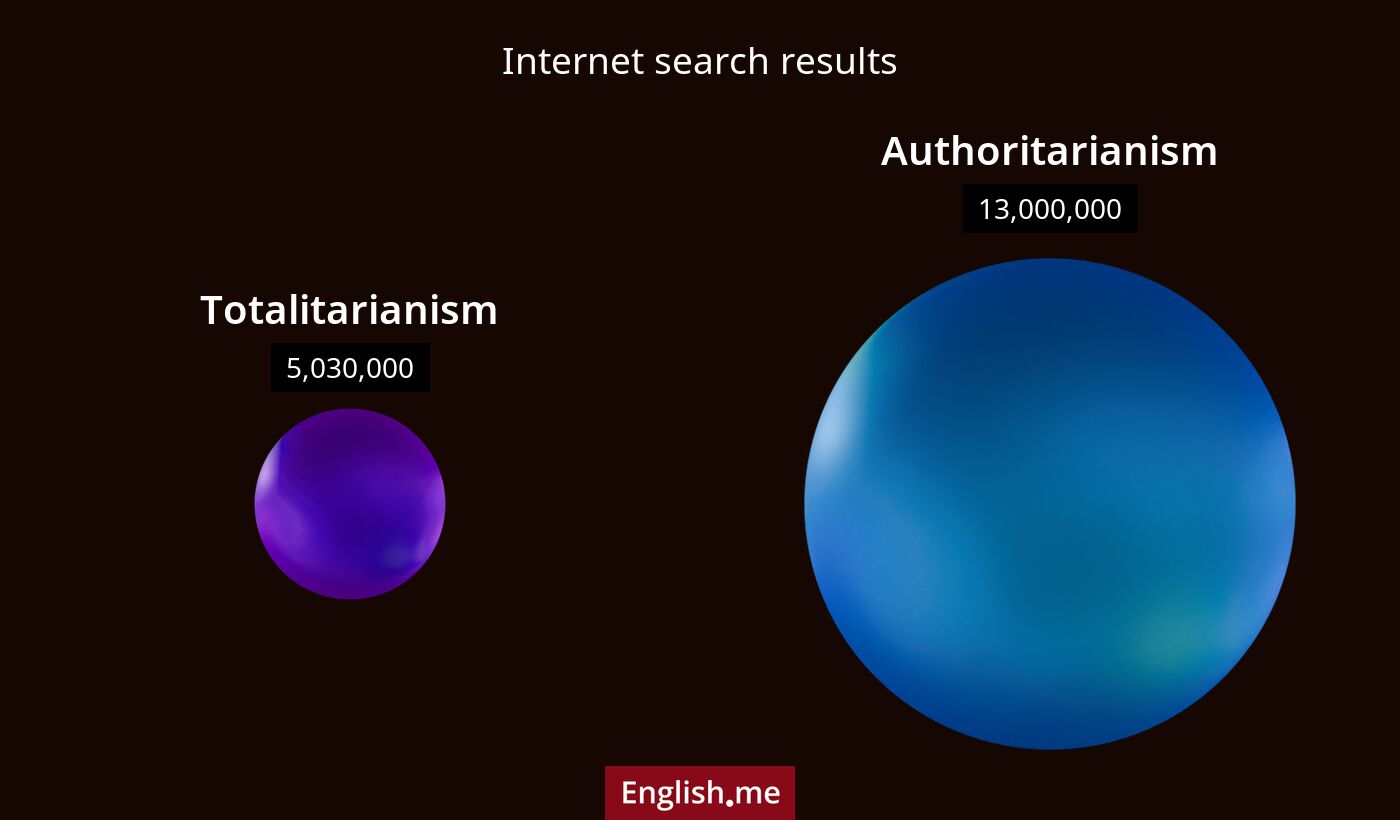Comparing control: "totalitarianism" vs. "authoritarianism"

 What is similar?
What is similar?
Both totalitarianism and authoritarianism refer to forms of government that concentrate power in the hands of a leader or a small elite that is not constitutionally responsible to the public. They both suppress political dissent and limit individual freedoms. Both systems often employ propaganda and control over the media to maintain their power.
 What is different?
What is different?
Totalitarianism is an extreme form of authoritarianism characterized by an attempt to control all aspects of life, including the economy, education, art, science, and private life. A totalitarian regime seeks to dominate every aspect of social and political life to an unprecedented degree. Authoritarianism, on the other hand, is marked by strong central power and limited political freedoms but may allow some individual and social freedoms, provided they do not threaten the regime. In authoritarian systems, political control is paramount, but total domination over all aspects of society as seen in totalitarianism is not necessarily pursued.
 Which one is more common?
Which one is more common?

 Examples of usage
Examples of usage
Totalitarianism- The regime's totalitarian approach meant that every aspect of the citizens" lives was under strict control.
- In a totalitarian state, dissent is not tolerated, and citizens are often subject to intense propaganda.
- Literature in the totalitarian society was heavily censored and used as a tool for indoctrination.
- Under the authoritarian government, political opposition was suppressed, but people still engaged in vibrant cultural activities.
- Authoritarianism can sometimes lead to stability, but it often does so at the cost of personal freedoms.
- Despite the authoritarian leadership, the country saw economic growth and infrastructure development.

 English
English español
español française
française italiano
italiano deutsche
deutsche 日本語
日本語 polski
polski česky
česky svenska
svenska Türkçe
Türkçe Nederlands
Nederlands